At LSS Law, we understand that financial difficulties can be stressful and overwhelming. That’s why we offer a no-cost Bankruptcy Strategy Session to help you understand your options and make an informed decision about your financial future.
In this guide, we’ll provide a comprehensive overview of Chapter 7 bankruptcy in Florida, including its benefits, eligibility requirements, the filing process, common concerns, and more. Filing bankruptcy can provide you with a fresh start if you are struggling with mounting debt that has become unmanageable. Understanding the details of Chapter 7 bankruptcy in Florida is essential before deciding whether it’s right for you.
What is Chapter 7 Bankruptcy?
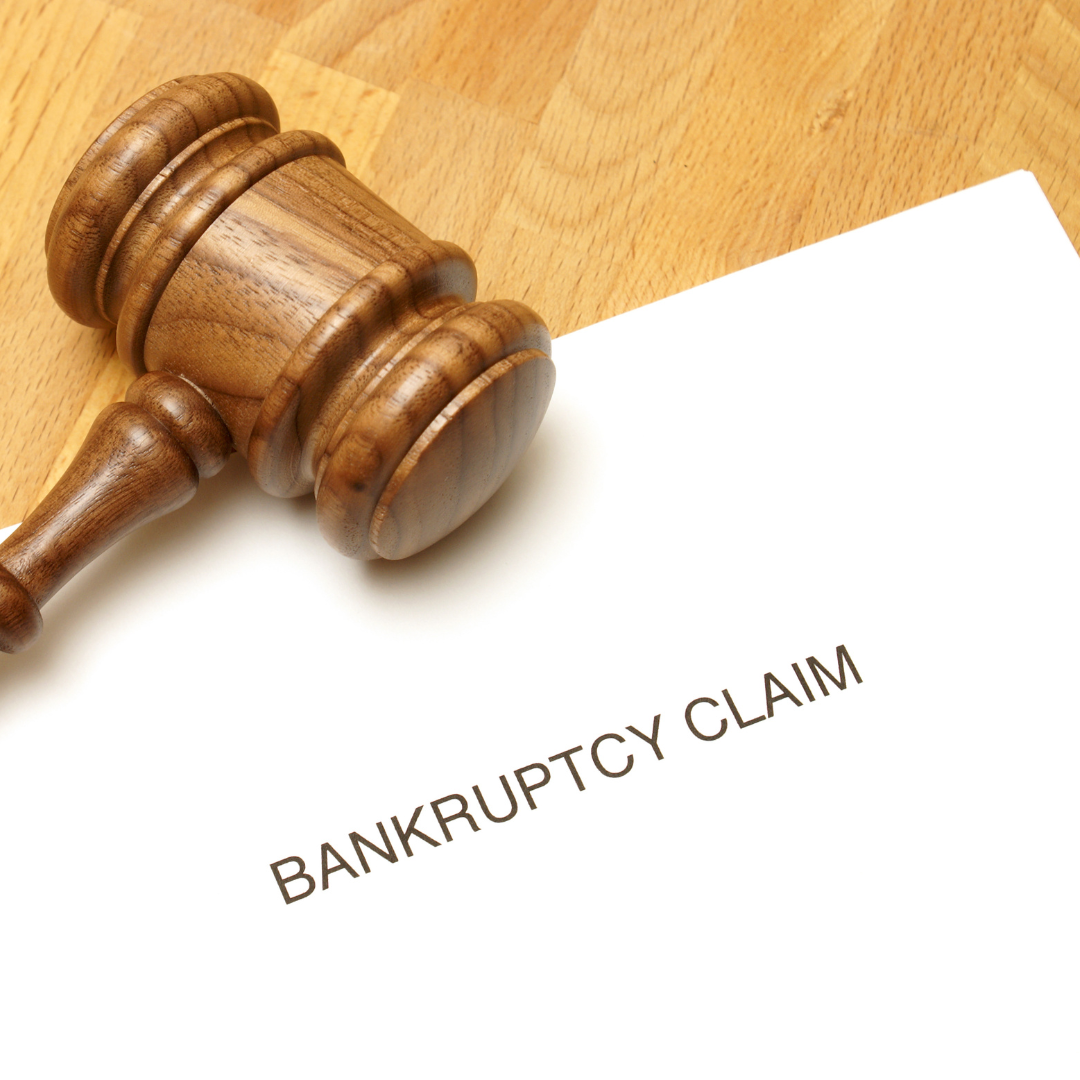
Chapter 7 bankruptcy is a form of bankruptcy that allows individuals and businesses to eliminate most types of unsecured debt. It is also known as a “straight bankruptcy” or “liquidation bankruptcy” because it involves the sale of non-exempt assets to pay off creditors.
To begin the process of filing for Chapter 7 bankruptcy, you must file a bankruptcy petition with the court. After that, a bankruptcy trustee is appointed to oversee the sale of non-exempt assets and distribute the proceeds to creditors.
One of the major advantages of Chapter 7 bankruptcy is that it provides a fresh financial start. Once the debts have been discharged, the debtor is no longer responsible for paying them back. However, Chapter 7 bankruptcy is not without its drawbacks. For example, not all debts are dischargeable in Chapter 7 bankruptcy, such as student loans, most tax debts, and debts resulting from fraud or willful misconduct. Additionally, the debtor’s credit score may be negatively impacted for several years after filing for bankruptcy.
Overall, Chapter 7 bankruptcy can be a powerful tool for individuals and businesses struggling with making their monthly payments.
Benefits of Chapter 7 Bankruptcy in Florida
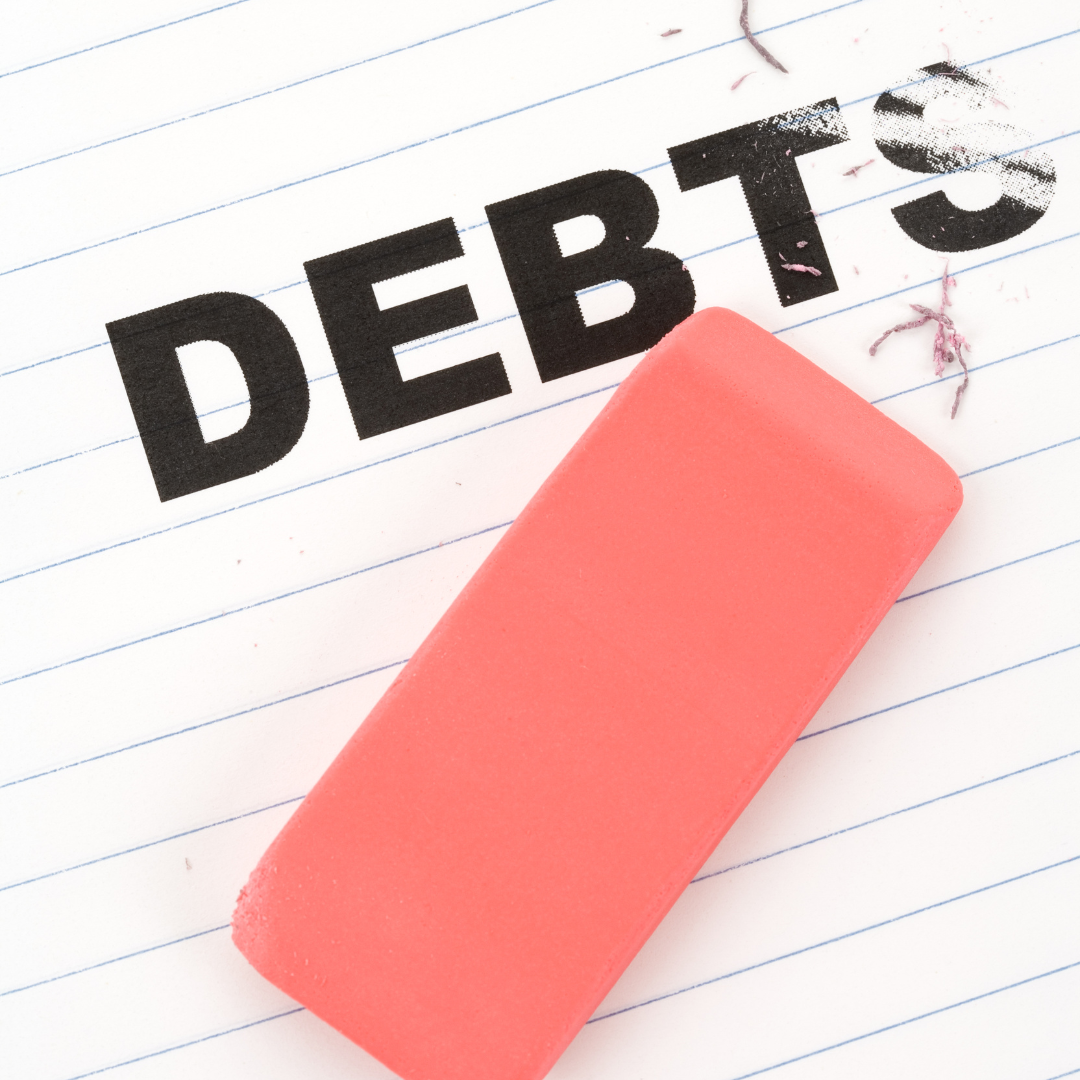
In this section, we’ll explore the benefits of Chapter 7 bankruptcy in Florida. Let’s dive into the benefits in detail.
Relief from Overwhelming Debt
Unsecured debt is credit that was granted without the requirement of collateral. Chapter 7 bankruptcy can provide relief from overwhelming debt by discharging most unsecured debts, such as credit card debts, medical bills, utility bills, and personal loans. Mortgages and car loans are considered secured debts.
Fresh Start for Financial Future
By discharging your debts, Chapter 7 bankruptcy provides a fresh start for your financial future. This can help you get back on track to managing your finances more easily going forward. Taking the necessary steps to meet the requirements is well worth the outcome of a successful Chapter 7.
Protection of Assets
Many people are hesitant to file for bankruptcy because they’re worried about losing their assets. In Florida, however, there are many exemptions that can protect your assets from being sold to pay off creditors. As a matter of fact, Floridians can take advantage of one of the most generous homestead exemptions in the country.
Along with many other states, Florida allows exemptions for your home, personal property, retirement accounts, and more.
Automatic Stay
One of the most significant benefits of Chapter 7 bankruptcy is the automatic stay. This is a court order that stops all collection attempts – including phone calls, letters, lawsuits, and foreclosure proceedings. This can provide immediate relief from the stress of creditor harassment and give you time to work on your finances without interruption.
Eligibility for Chapter 7 Bankruptcy in Florida

To be eligible for Chapter 7 bankruptcy in Florida, you must meet certain requirements. These include:
The Means Test
The means test is used to determine if your income is below the median income for your household size in Florida. If your income is above the median, you may still be eligible to file for Chapter 7 bankruptcy by passing a second means test that takes your expenses and other factors into account. The means test is intended to prevent abuse of the bankruptcy system by those who may have the ability to repay their debts.
Exemptions
Florida has a specific set of exemptions that can protect your assets from being sold to pay off creditors. These Florida bankruptcy exemptions include your home, personal property, retirement accounts, and more.
Depending on the type of bankruptcy you file, certain exemptions may be available to you. It’s important to work with an experienced bankruptcy attorney to ensure that you take full advantage of these exemptions and protect your assets. Here are some of the most common Florida bankruptcy exemptions available:
Homestead Exemption
The Homestead Exemption is a legal protection that can exempt the entire value of your primary residence from being sold to pay off creditors. In Florida, the Homestead Exemption is one of the most significant exemptions available, and it’s recognized as a constitutional right.
To be eligible for the Homestead Exemption, you must meet certain criteria. The property must be your primary residence, and it must be located on less than half an acre of land within a municipality or 160 acres of land outside a municipality.
There’s no limit to the value of the home you can protect with this exemption, but the exemption may not apply to all types of debts, such as mortgages or tax liens.
It’s important to note that the Homestead Exemption has some limitations. For example, if you sell your homestead property, the proceeds from the sale may not be protected by the exemption. Additionally, if you file for bankruptcy within 1,215 days of acquiring your homestead property, your exemption may be limited.
If you’re considering filing for Chapter 7 bankruptcy in Florida and want to protect your home, a qualified bankruptcy attorney can help you navigate the complex rules surrounding the Homestead Exemption.
Personal Property Exemptions
Florida allows several personal property exemptions, including:
- $1,000 in personal property, including furniture, appliances, and clothing
- Up to $4,000 in personal property if you don’t use the Homestead Exemption
- Up to $1,000 in a motor vehicle
- Retirement accounts, including 401(k)s, IRAs, and pensions
- Up to $1,000 in jewelry
- Up to $2,000 in tools used for your trade or business
Wages Exemption
In Florida, wages for the head of the family are exempt up to $750 per week or the greater of 75% of disposable earnings or 30 times the federal minimum wage, currently $330 (subject to change). Disposable earnings refer to the amount of income that is left over after the legally required deductions have been made. For example, taxes or court-ordered child support payments.
Wildcard Exemption
You can claim the wildcard exemption if you do not use the homestead exemption – but it can be used in addition to any other exemptions that you’re eligible for. The wildcard exemption allows you to exempt up to $4,000 of any personal property of your choice, and up to $8000 if you are filing jointly.
To best determine which exemptions you should use and how much you can exempt, it is best to consult a bankruptcy lawyer. They can help guide you through the process and ensure that your assets are properly protected during bankruptcy proceedings.
Other Exemptions
Florida also offers several other exemptions, including:
- Public benefits, including unemployment compensation, social security, and workers’ compensation benefits
- Prepaid college plans and 529 college savings plans
- Annuities and life insurance policies
- Property of a business partnership
The Chapter 7 Bankruptcy Process in Florida
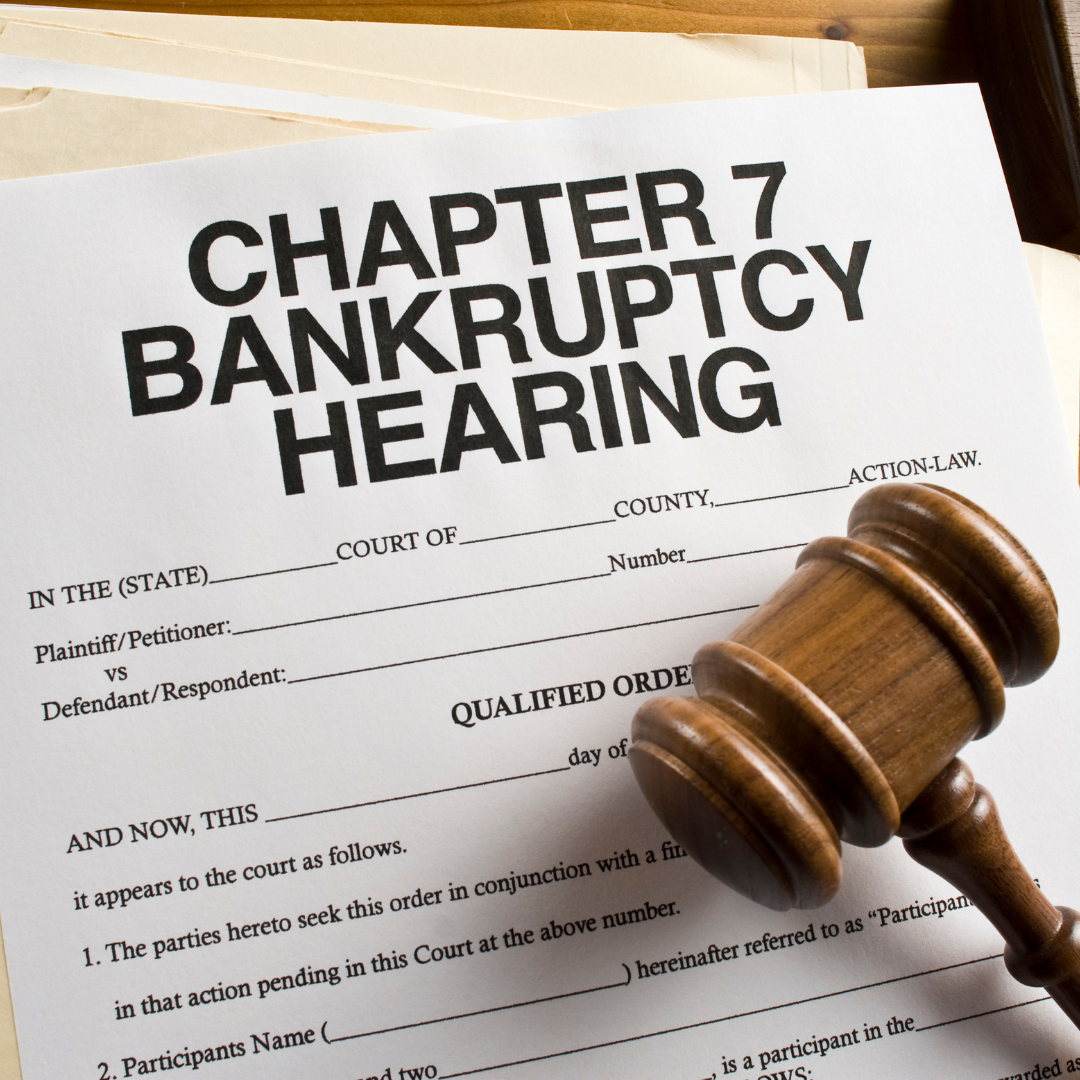
Overview of the Steps Involved
The Chapter 7 bankruptcy process in Florida typically involves the following steps:
- Credit Counseling: You must complete a credit counseling course before filing for bankruptcy.
- Filing: Your bankruptcy attorney will file a petition with the court on your behalf.
- Meeting of Creditors: You’ll attend a meeting with your creditors and bankruptcy trustee to discuss your finances.
- Liquidation: Non-exempt assets will be sold to pay off creditors.
- Discharge: When you obtain your bankruptcy discharge letter the case is not closed yet, but it is imminent.
Role of the Bankruptcy Trustee
The bankruptcy trustee is appointed by the court to oversee the Chapter 7 bankruptcy process. They play a vital role in ensuring that the process is fair and that creditors receive as much money as possible from the liquidation of non-exempt assets. The trustee is a neutral party and does not represent you or your creditors.
The trustee must be approved by the bankruptcy court which appoints them to manage a debtor’s case. The trustee works with both debtors and creditors in order to ensure that all parties are treated fairly during this legal process.
One of the trustee’s primary responsibilities is to review your bankruptcy forms and ensure that they are accurate and complete. They’ll also review your financial documents, including bank statements, tax returns, and pay stubs, to ensure that you’ve provided all the necessary information.
The trustee is also responsible for selling the non-exempt assets to pay off your creditors. Non-exempt assets are those that aren’t protected by exemptions under Florida law. The trustee will sell these assets and distribute the proceeds to your creditors according to a priority system.
The trustee will also preside over the meeting of creditors, which is a mandatory meeting that you’ll be required to attend. At the meeting of creditors, the trustee will ask you questions about your financial situation and your bankruptcy paperwork. They’ll also give your creditors the opportunity to ask you questions.
Finally, the trustee will make recommendations to the court about your bankruptcy case. Your financial documents will be evaluated to decide whether or not you meet the requirements for filing for bankruptcy. If the trustee believes that there are issues with your case, it may be recommended that the case be dismissed or converted to a Chapter 13 bankruptcy. If everything looks good, however, he or she will recommend that your debts be discharged and that your case be closed.
Overall, the bankruptcy trustee plays a crucial role in the Chapter 7 bankruptcy process in Florida. Work closely with your bankruptcy attorney to provide the trustee with all the necessary information to ensure that he or she can do the job effectively.
Creditors Meeting and Discharge
The meeting of creditors is a mandatory meeting where you’ll answer questions about your finances under oath. Your creditors may attend the meeting and ask you questions, but it’s usually a relatively straightforward process.
With a successful Chapter 7, the bankruptcy court mails a discharge letter, which officially clears the debtor of all qualifying obligations. The timing of the letter depends on the assets involved – a “no-asset case” will be the quickest. At this point, the case is not yet closed, but the letter brings welcome news.
Common Concerns about Chapter 7 Bankruptcy in Florida

Despite its benefits, many people hesitate to file for Chapter 7 bankruptcy because of its potential impact on their credit score and future employment prospects. While it’s true that bankruptcy can have a negative effect on your credit score, it’s important to understand that it’s not the end of your financial life. In fact, many people are able to rebuild their credit and improve their financial situation after filing for bankruptcy. In this section, we’ll address some common concerns about Chapter 7 bankruptcy in Florida, starting with how it affects your credit score.
Credit Score
Filing for Chapter 7 bankruptcy will have an initial negative impact on your credit score. However, if you’re considering bankruptcy, it’s likely that your credit score is already suffering due to missed payments, defaults, or collections. By filing for bankruptcy and discharging your debts, you can take the first step toward rebuilding your credit score.
After filing for bankruptcy, your credit score may initially drop by 100 to 200 points, depending on your pre-bankruptcy credit score. However, the good news is that this decrease is temporary and you can take steps to improve your credit score in a short period of time.
To start rebuilding your credit score after bankruptcy, you’ll need to be proactive. One of the best ways to improve your credit score is to obtain new credit and make timely payments. This can include applying for a secured credit card, which requires a deposit to serve as collateral or obtaining a credit-builder loan from a credit union.
Making timely payments on new credit accounts is crucial for improving your credit score. Your payment history makes up 35% of your credit score, so paying your bills on time is essential. By paying your bills on time and keeping your balances low, you’ll be able to demonstrate to creditors that you’re responsible and creditworthy.
check your credit report
It’s a good idea to check and monitor credit reports on a regular basis to ensure they’re accurate. Check, for example, that all discharged debts are actually reported as discharged. Each of the three major credit bureaus (Equifax, Experian, and TransUnion) will provide you with one free credit report every 12 months.
Employment Prospects
Some employers may view bankruptcy negatively, but it’s illegal for an employer to discriminate against someone based on their bankruptcy status. In many cases, filing for bankruptcy can actually improve your employment prospects because it can help you get your finances back on track.
Non-Dischargeable Debts
Not all debts can be discharged through Chapter 7 bankruptcy. Some non-dischargeable debts include taxes, student loans, and child support payments. However, even if you have non-dischargeable debts, filing for bankruptcy can still provide relief from other debts and make these payments easier for you.
Conclusion
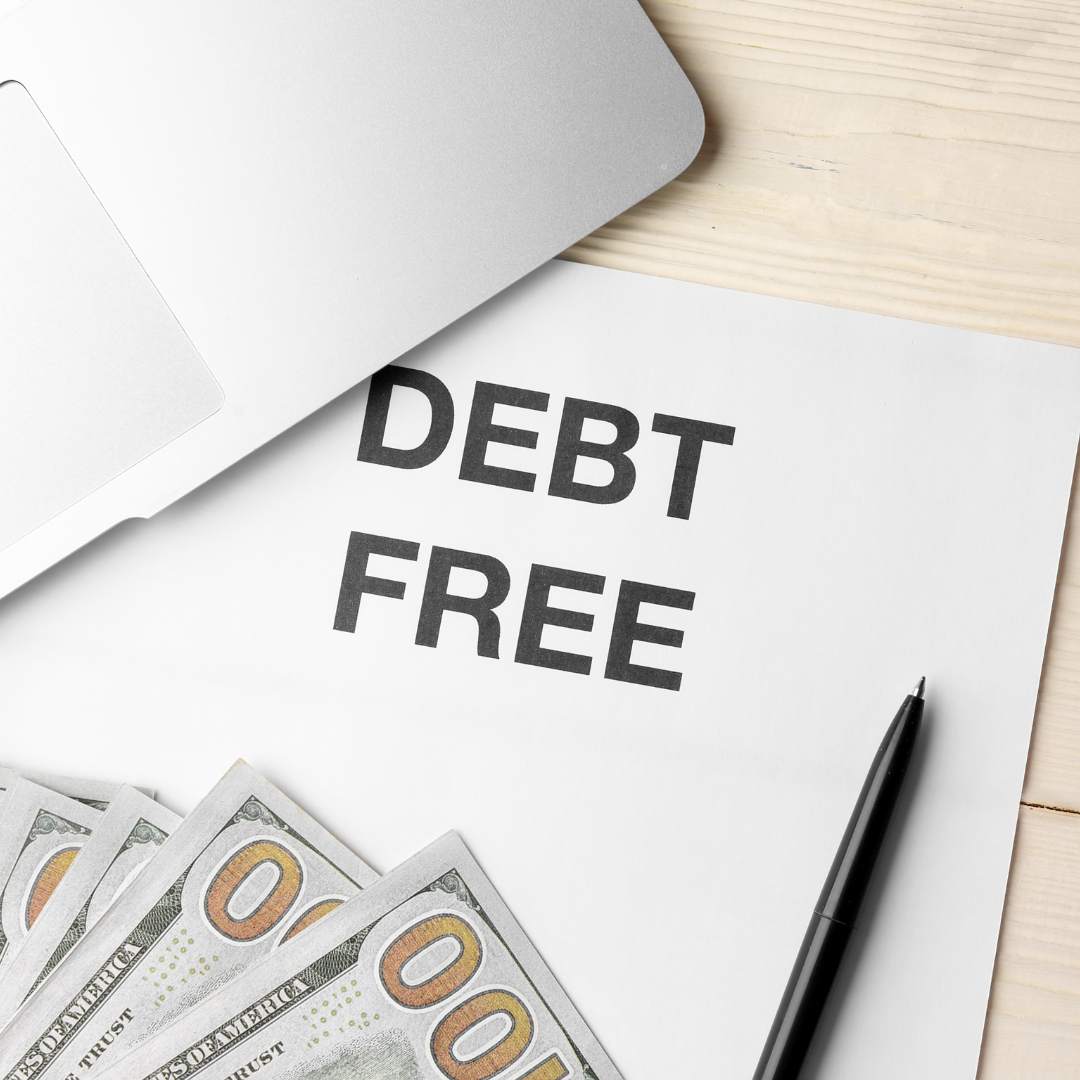
Chapter 7 bankruptcy can provide relief from your financial struggle, a fresh start for your financial future, and protection for your assets. If you’re considering bankruptcy, it’s important to work with an experienced bankruptcy attorney to ensure that you understand the process and take full advantage of the exemptions available to you. Contact LSS Law today to schedule a no-cost Bankruptcy Strategy Session and take the first step toward financial freedom.
Request a No-Cost Bankruptcy Strategy Session with LSS Law
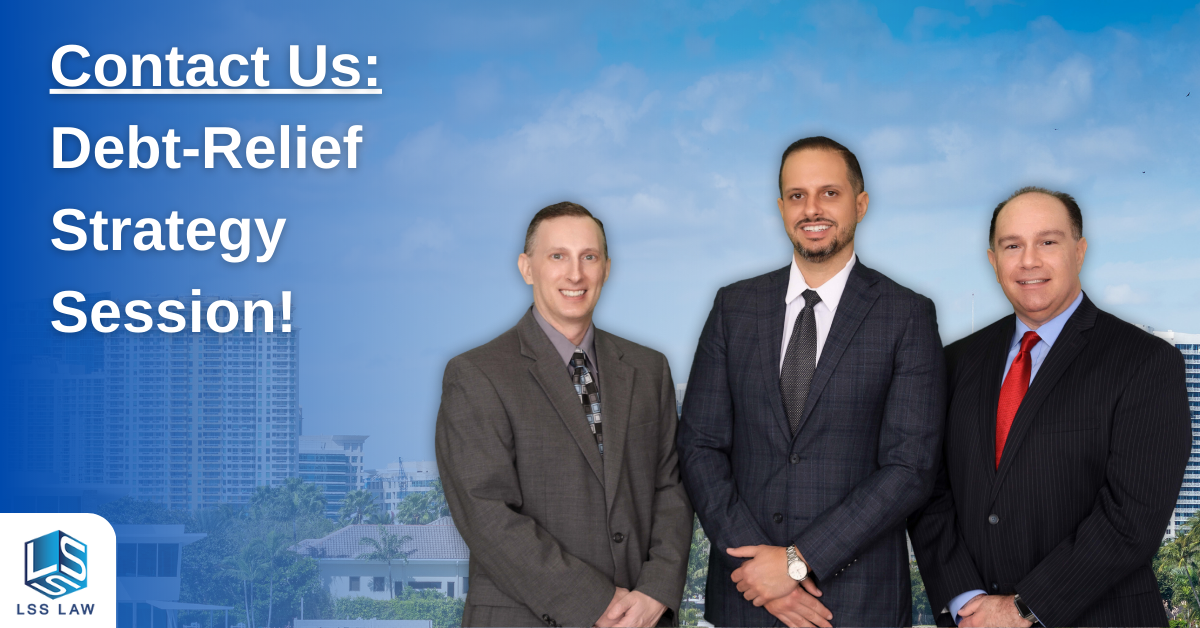
If you’re struggling with overwhelming debt and considering bankruptcy, consult with an experienced bankruptcy attorney who can guide you through the process and ensure that your rights are protected. At LSS Law, we offer a no-cost, no-risk Bankruptcy Strategy Session to help you understand your options and make an informed decision about your financial future.
During your Bankruptcy Strategy Session, you’ll meet with one of our experienced attorneys to discuss your finances, review your options, and get answers to any questions you may have. We’ll provide you with the information you need to make an informed decision about your financial future and guide you through the process every step of the way.
To schedule your no-cost Bankruptcy Strategy Session with LSS Law, contact us today by phone at 954-466-0541 or email at info@lss.law. You can also schedule your session directly on our website at https://lss.law/contact-us/. Don’t wait any longer to take the first step toward financial freedom – schedule your no-cost Bankruptcy Strategy Session with LSS Law today.
Chapter 7 Bankruptcy in Florida | Your Questions Answered
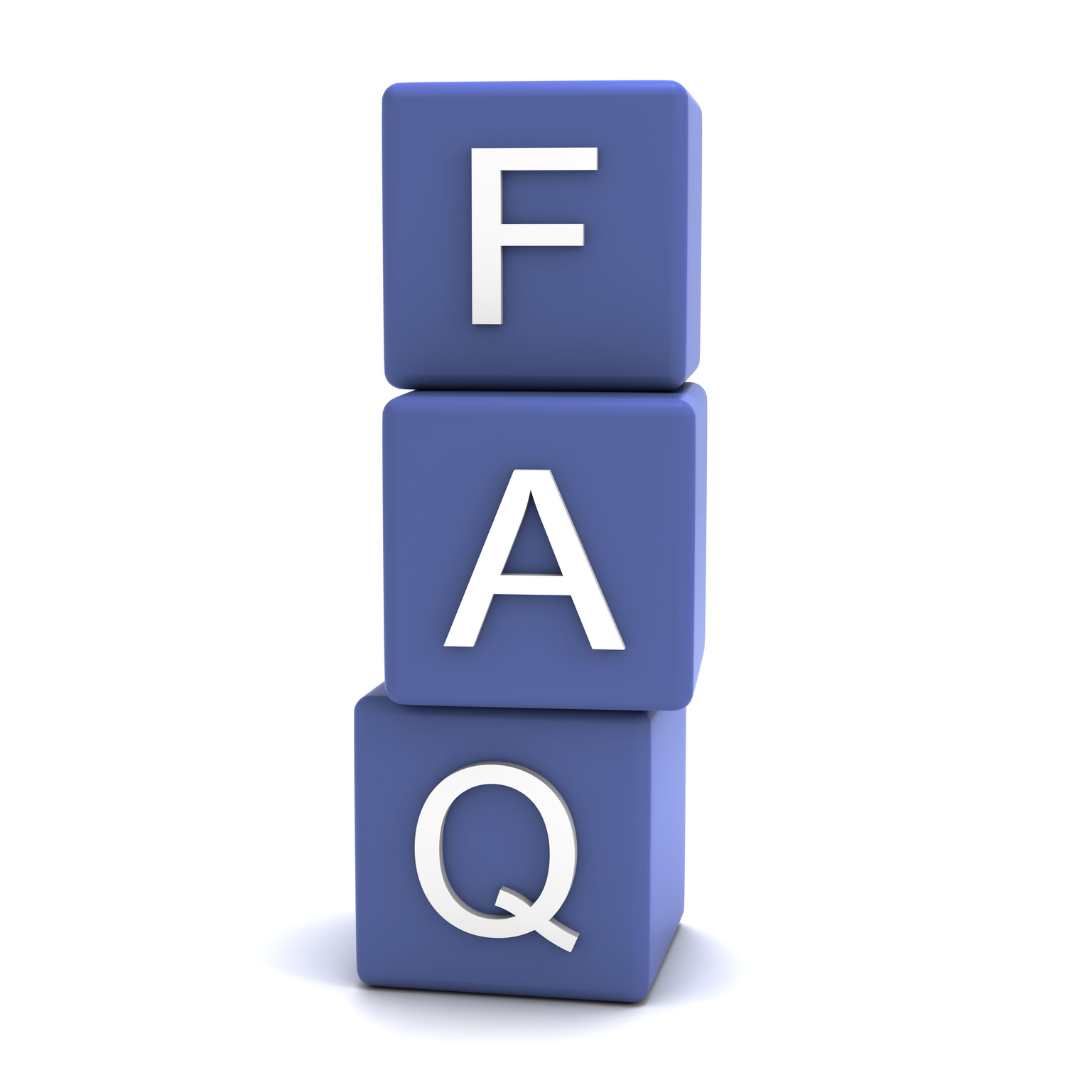
How does bankruptcy Chapter 7 work in Florida?
Chapter 7 bankruptcy works similarly in Florida as it does in other states, but with some notable differences. In Florida, you’re allowed an unlimited homestead exemption, meaning you can keep your home regardless of its value.
However, in other states, this may not be the case. It’s important to work with an experienced bankruptcy attorney to ensure that you understand the specifics of how Chapter 7 bankruptcy works in Florida.
How long does a Chapter 7 bankruptcy take in Florida?
The Chapter 7 bankruptcy process typically takes around 3 to 4 months in Florida. However, the exact timeline can vary depending on the specifics of your case – in particular, your assets. You might receive a discharge letter, but the case might stay open because the trustee and your creditors need more time to wrap things up.
How do you qualify for Chapter 7 in Florida?
To qualify for Chapter 7 bankruptcy in Florida, you may need to pass the means test. The means test is used to determine if your income is below the median income for your household size in Florida. However, in some cases, the means test may not apply. It’s important to work with an experienced bankruptcy attorney to determine if you qualify for Chapter 7 bankruptcy in Florida.
Can you keep your car if you file Chapter 7 in Florida?
If you have a car loan (lien), you’ll need to keep making your payments if you want to keep your car. Depending on the value of your car and the allowable exemption, you may be able to keep your car. In Florida, you’re allowed up to $1,000 of equity in your car. Again, it’s important to work with an experienced bankruptcy attorney to understand how exemptions work and how they apply to your specific case.
Is it hard to file for bankruptcy in Florida?
Filing for bankruptcy can be a complex and stressful process, but with the help of an experienced bankruptcy attorney, it doesn’t have to be hard. Your attorney will guide you through the process and help ensure that everything is filed correctly and on time.
How much does it cost to file for bankruptcy in Florida?
The cost of filing for bankruptcy in Florida can vary depending on the specifics of your case. However, at LSS Law, we offer a no-cost Bankruptcy Strategy Session to help you understand your options and make an informed decision about your financial future.
Can I file bankruptcy without a lawyer in Florida?
Technically, you can file for bankruptcy without a lawyer in Florida, but it’s not recommended. Filing for bankruptcy can be a complex process, and mistakes can have serious consequences.
What is the difference between secured debt and unsecured debt?
The main difference between secured debt and unsecured debt is that secured debt has collateral attached to it, while unsecured debt does not. Secured debt, such as a house or a car, can be repossessed if the payments are not made as agreed. On the other hand, unsecured debt is not backed by any collateral; examples include credit card debts and medical bills.
Bonus Info: Why Choose Chapter 7 Bankruptcy Over Chapter 13 Bankruptcy?

Chapter 7 bankruptcy and Chapter 13 bankruptcy are the two most common types of bankruptcy for individuals in the United States. While both types of bankruptcy can provide debt relief, they have different requirements and benefits. Here are a few reasons why someone may choose Chapter 7 bankruptcy over Chapter 13 bankruptcy:
Faster Process
Chapter 7 bankruptcy typically takes only a few months to complete, while Chapter 13 bankruptcy requires a repayment plan that can last three to five years. If you’re looking for a quicker resolution to your financial difficulties, Chapter 7 may be a better option.
No Repayment Plan
In Chapter 7 bankruptcy, most unsecured debts are discharged without the need for a repayment plan. This means that you won’t have to make monthly payments to creditors for several years, as is required in Chapter 13 bankruptcy.
No Income Requirements
Chapter 13 bankruptcy requires you to have a regular income to qualify, as you’ll need to make monthly payments to your creditors through a repayment plan. Chapter 7 bankruptcy has no such requirement, making it a good option for those who don’t have a regular income.
Potential for More Debt Discharge
While both Chapter 7 and Chapter 13 bankruptcy can discharge certain types of debts, Chapter 7 may be able to discharge more types of debts than Chapter 13. This includes credit card debt, medical bills, and personal loans.
The decision to file for Chapter 7 or Chapter 13
Which type of bankruptcy is appropriate for you depends on your individual financial situation. To qualify for Chapter 7 bankruptcy, a debtor must pass the means test. To qualify for a Chapter 13 bankruptcy, he or she must have enough income to be reliable on a repayment plan.
Working with LSS Law can help you understand the pros and cons of each type of bankruptcy and make an informed decision that you will not regret.
Who is an Ideal Candidate for Chapter 7 Bankruptcy?

Chapter 7 bankruptcy is a good option for individuals who are struggling with debt payments and have little or no disposable income. Here are a few characteristics of an ideal candidate for Chapter 7 bankruptcy:
- High levels of unsecured debt, such as credit card debt or medical bills
- Little or no disposable income (after necessary expenses)
- No significant assets that would be at risk of being sold to pay off creditors
- Willingness to surrender non-exempt assets to pay off creditors
- No regular income or ability to make regular payments to creditors
If you meet these criteria and are struggling with overwhelming debt, Chapter 7 bankruptcy may be a good option for you.
Who is an Ideal Candidate for Chapter 13 Bankruptcy?

Chapter 13 bankruptcy is a good option for individuals who have a regular income and can afford to make monthly payments to their creditors. Here are a few characteristics of an ideal candidate for Chapter 13 bankruptcy:
- Regular income that is sufficient to cover necessary expenses and a repayment plan
- Significant assets that would be at risk of being sold in Chapter 7 bankruptcy
- Priority debts, such as tax debts or child support payments, that cannot be discharged in Chapter 7 bankruptcy
- Willingness to commit to a repayment plan for three to five years
If you meet these criteria and are struggling with overwhelming debt, Chapter 13 bankruptcy may be a good option for you.






